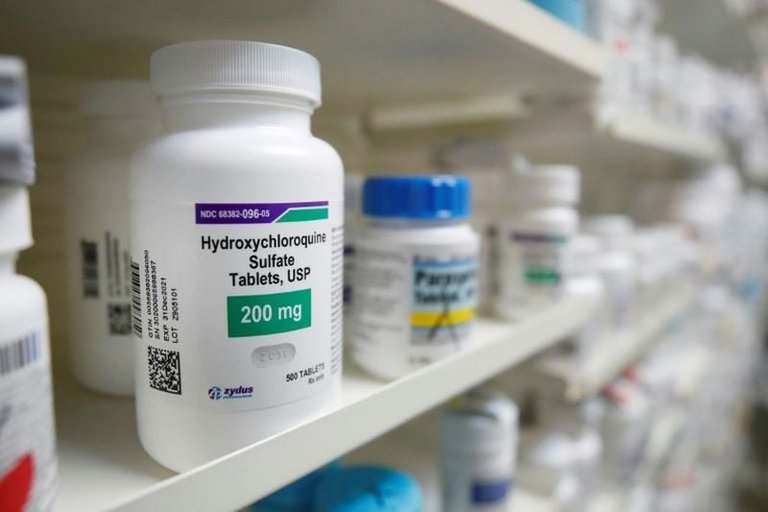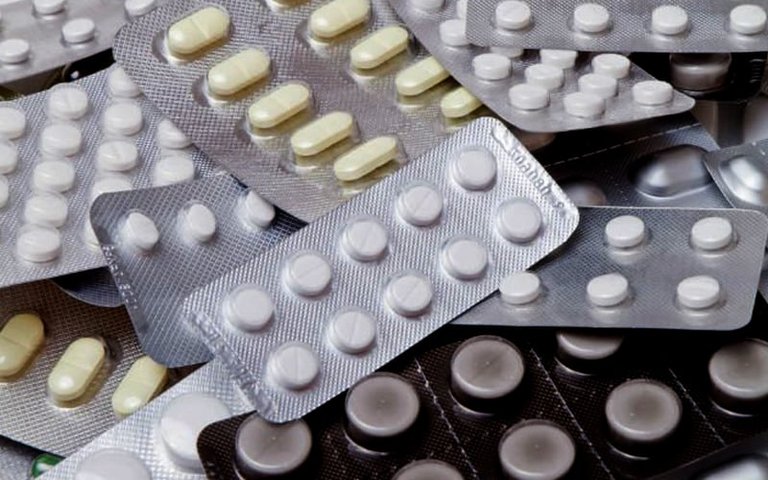It will be strange to see chloroquine being prescribed to someone suffering from malaria even when in the past it was a drug for malaria. People who suffer from this illness currently use artesunate (AS), or artemether (AM) to treat malaria. So what changed, what is Chloroquine, what is hydroxychloroquine, why was it mentioned in the Covid-19 scenario and what does it do in the body?
It is a prescription drug just like other prescription drugs gotten and modeled after the popular compound gotten from the back of tree known as Quinine as its synthetic version. Although this medication was used during the second world war even though I wasn't born then, it is said to come with a lot of baggage like hearing loss and damage to the retina so in the year 1955 just 5 years before Nigeria got independence, a version that was less risky known as Hydroxylchloroquine (C18H26CIN3O) was made to help treat malaria. The elements composed in the medication are Carbon, Hydrogen, Chlorine, Nitrogen, and Oxygen. Making Chloroquine less risky only required adding an oxygen bond to a hydrogen.
If you remember, chloroquine was mentioned severally during the Covid-19 period as a possible cure and the theory that it could cure Covid-19 was as a result of two things which includes limiting the body's immune response since it is good at treating autoimmune diseases, also the drug has shown effectiveness against viral infection including inhibiting HIV in vitro. In fact researchers identified it as an active antiviral agent for SARS-CoV (SARS-1)in Cell culture, thanks to its binding capabilities of the ACE 2 receptor on human cells which is an entry point for both Covid-19 and the SARS virus.
The research by researchers caused the FDA to approve both Chloroquine and Hydrochloroquine for the emergency medication of Covid-19 but because a drug works perfectly well in vitro doesn't mean it would in the body. While they might be effective in the dish, they might be too toxic in the body, they might be affected by hormones and other factors, let's not also forget that petri dishes, agar, cultures do not have side effect but humans do have side effects.
When it comes to side effects, it can range from headache, Nausea, Hair loss, and abnormalities in Heart rhythm which could lead to death and this side effect can differ in different people. When it came to chloroquine and Hydroxylchloroquine, and Covid-19, researcher confirmed that it was associated with decreased in-hospital survival and increased mortality rate as a result of triggering an increased frequency of ventricular arrhythmia when used to treat patients.
This led to the halting of hydrochloroquine trial by the World Health Organization (WHO). We could tell that chloroquine does a lot in the to us and although a lot of research are done in the UK and in Canada but for now, it is completely wrong to use chloroquine without a prescription from a doctor. If a doctor requires you to use chloroquine, then they would do their proper examination and be able to watch for side effects.
Reference.
https://www.cdc.gov/malaria/resources/pdf/fsp/drugs_2017/Chloroquine_2017.pdf
https://www.ncbi.nlm.nih.gov/books/NBK551512/
https://pmc.ncbi.nlm.nih.gov/articles/PMC10398476/
https://www.afro.who.int/publications/effectiveness-use-chloroquine-hydroxychloroquine-covid-19-case-management
https://pmc.ncbi.nlm.nih.gov/articles/PMC7922580/


I heard people used ChloroQuine during the Covid-19 era and I wondered why there was no side effect until I started to read about side effects. This is because people who use the drug to treat malaria usually suffer a lot of side effects including Itching, headache, dizziness, and so on.
Thanks for your contribution to the STEMsocial community. Feel free to join us on discord to get to know the rest of us!
Please consider delegating to the @stemsocial account (85% of the curation rewards are returned).
Thanks for including @stemsocial as a beneficiary, which gives you stronger support.